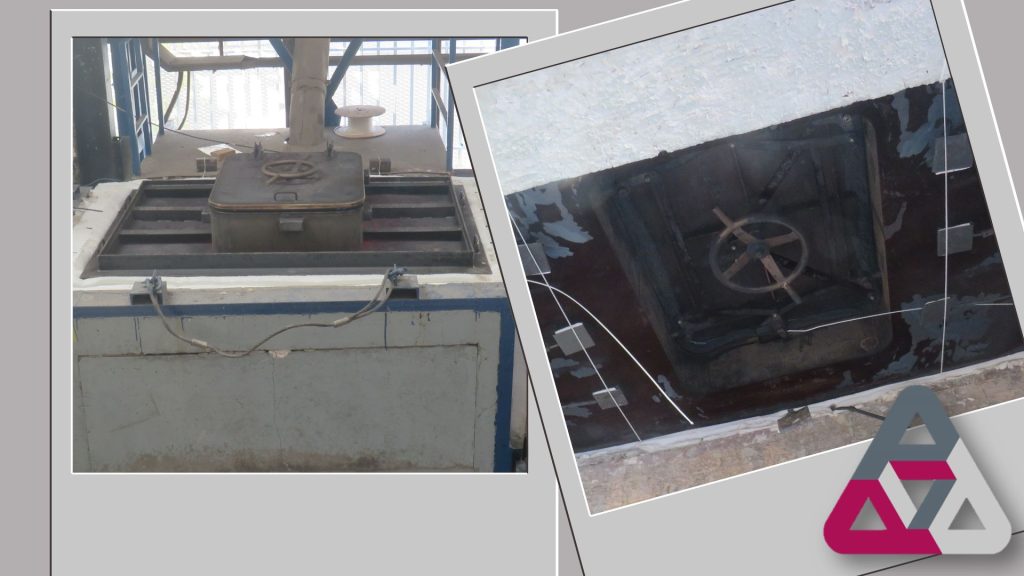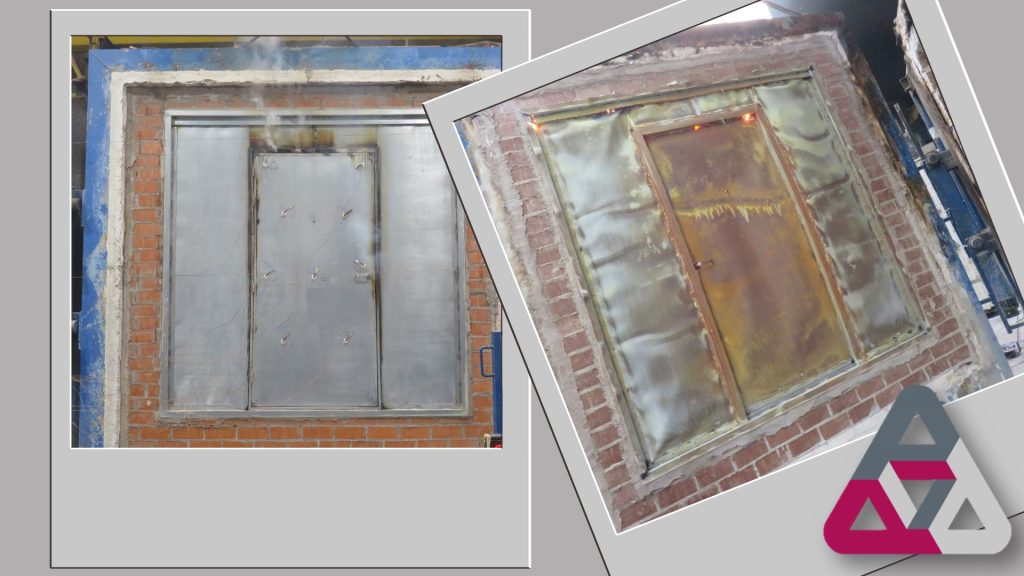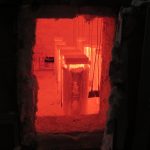Fire Tests for Naval Elements at AFITI


Fire safety is one of the most critical aspects in shipbuilding. In an enclosed environment such as that of a ship, a fire can spread rapidly, putting both people and the integrity of the vessel at risk. Therefore, fire testing for marine components is essential to ensure the strength and safety of materials and components used in ships, oil rigs and other marine structures.
In Europe, the regulations governing fire testing in the marine sector are aligned with the requirements of the International Maritime Organisation (IMO), the Marine Equipment Directory (MED) is key to the safety of marine materials. This regulation ensures that equipment and materials used on board ships are certified to withstand extreme fire conditions.
There are different types of fire tests designed to assess the ability of naval materials and components to withstand fire. The main ones are:
1.-Fire resistance tests:
These tests assess the ability of a material to ‘maintain its structural integrity’ when exposed to high temperatures for a given time. This is especially crucial for bulkheads, decks and other structural parts of ships that must contain a fire until extinguishing measures can control the fire.
- Flame spread tests:
These tests assess how quickly a material can spread fire once exposed to an ignition source. Low flame spread materials are essential for areas where the fire risk is high, such as kitchens, engine compartments or areas with electrical systems.
- Smoke and toxicity testing:
In addition to fire resistance, materials used on board must undergo ‘smoke and toxic gas emission’ tests. During a fire, the smoke generated can be lethal to passengers and crew. Toxicity tests assess whether materials release hazardous gases that could endanger human health.
- Flammability testing:
These tests focus on whether a material can ‘catch fire’ when exposed to a direct flame or heat. Flammability is a key factor in the selection of cladding materials or furnishings in public areas of the ship.
Today, shipbuilders and manufacturers are adopting high-tech materials that not only meet fire resistance requirements, but also offer additional properties such as lightness and durability, which are essential to improve the efficiency of ships. Among the most commonly used materials today are: mineral wool insulation, intumescent paints, fire resistant composite panels, among others.
It is important to talk about certification and European regulations because before any shipbuilding material or component is used on board a ship, it must undergo strict testing and certification processes. In Europe, authorised laboratories test to the standards of the European Maritime Fire Safety Regulations, as well as IMO requirements.
There is also the ADCO Group, Market Surveillance Authorities for the Marine Equipment Directive which is created with the aim of facilitating cooperation, exchange of information and experiences related to market surveillance, as set out in Article 30 of the (EU) REGULATION 2019 on market surveillance and conformity of products and the MED Directive 2014/90 EU itself in Article 33.
The objectives of the group are: To harmonise the implementation of Union legislation with regard to the MED directive, to promote communication between market surveillance authorities, to create joint market surveillance actions for marine equipment, to facilitate sector specific product assessments including test methods, risk analysis, recent scientific developments and other aspects relevant to market surveillance control activities.
The MED (Marine Equipment Directive) certification ensures that materials have successfully passed tests and are suitable for use on ships built or sailing under the European flag.
Regarding new trends in fire protection in the marine sector, with the development of new technologies and the increasing demand for more efficient and sustainable solutions, the marine sector is embracing innovations in fire protection. Notable trends include: Advanced composite materials, which offer increased fire resistance, without compromising the weight or mechanical properties of naval structures. Automatic fire detection and suppression systems, designed to operate autonomously in key areas of the ship, such as engine rooms and cargo holds. Penetration sealing systems, which ensure that flames and smoke do not spread through ducts or gaps in the ship’s structures.
Fire safety in the marine industry is fundamental to the safe operation of any vessel. Fire testing of materials and structural elements ensures that ships meet the highest international standards, minimising the risk of fire on board and ensuring that vessels can respond effectively in the event of an emergency.
The correct selection of fire-retardant materials, together with advanced protection systems, is vital to ensure not only the safety of passengers and crew, but also the protection of the ship itself and its operations. In our partnership, we are committed to providing certified solutions that comply with the strictest European regulations and offer maximum fire protection in the marine sector.

 Previous Post
Previous Post Next Post
Next Post
